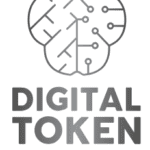In the realm of computing, a new and revolutionary player has emerged—quantum computing. Often shrouded in mystery and complex terminology, quantum computing may seem like science fiction, but it’s a rapidly advancing field with the potential to redefine the boundaries of what’s possible in the world of computation. In this beginner’s introduction, we’ll unravel the enigma of quantum computing and explore its fundamental concepts.
VIP Tech Blog wants to get deep on few chapters of this amazing technology know as Quantum Computing .
Chapter 1: The Quantum Revolution
1.1 What Is Quantum Computing?
We’ll define quantum computer and distinguish it from classical computing, explaining its fundamental differences.
1.2 Quantum Bits (Qubits):
Discover the building blocks qubits, and how they differ from classical bits.
Chapter 2: The Magic of Superposition
2.1 Understanding Superposition:
Explore the concept of superposition, where qubits can exist in multiple states simultaneously, offering exponential processing power of quantum computers.
2.2 Quantum Entanglement:
Delve into quantum entanglement, a phenomenon where qubits become interconnected, even when separated by vast distances.
Chapter 3: Quantum Gates and Quantum Circuits
3.1 Quantum Gates:
Learn about quantum gates, the quantum counterparts of classical logic gates, which manipulate qubits’ states.
3.2 Quantum Circuits:
Understand how quantum gates are combined into quantum circuits, which perform complex calculations.
Chapter 4: Quantum Computing Algorithms
4.1 Shor’s Algorithm:
Explore Shor’s algorithm, which can factor large numbers exponentially faster than classical computers, posing a potential threat to current encryption methods.
4.2 Grover’s Algorithm:
Discover Grover’s algorithm, which accelerates search processes and has implications for databases and cryptography.
Chapter 5: Practical Applications
5.1 Cryptography and Security:
Understand how threatens classical encryption and what’s being done to counter this.
5.2 Drug Discovery:
Explore how revolutionize drug discovery by simulating molecular interactions.
5.3 Optimization Problems:
Learn how address complex optimization problems, from logistics to financial modeling.
Chapter 6: Challenges and Limitations
6.1 Decoherence:
Delve into the challenge of decoherence, which threatens qubits’ stability and information integrity.
6.2 Scalability:
Understand the current limitations of quantum computing in terms of scalability and noise reduction.
Chapter 7: Companies and Research
7.1 Leading Companies:
Explore the companies at the forefront research and development, such as IBM, Google, and Rigetti.
7.2 Research and Initiatives:
From national research programs to academic endeavors.
Conclusion:
It is at the cutting edge of scientific and technological advancement, offering both promise and challenge. It has the potential to transform industries, solve problems once thought unsolvable, and revolutionize cryptography. This beginner’s introduction is just the tip of the quantum iceberg.
Quantum Manifestation Code Exist ?
Want to support this blog or Buy Author a Coffe ?



2 comments
[…] computers are based on the quantum system, where information is encoded in quantum bits, or qubits, which can have not only two values, […]
[…] properties that make them invaluable in various applications. Carbon nanotubes, graphene, and quantum dots are just a few examples of nanomaterials that have revolutionized […]